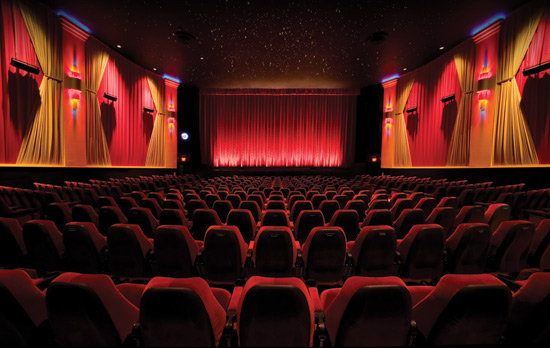After a couple of decades in the dark, the lights have finally come back on in Nigeria’s cinemas. Actually, it’s more accurate to say that new movie theatres have arisen on the ashes of the old ones. The joys of the descending seat rows, giant screens and surround sound have returned, complete with the popcorn, laughter and tears that we associate with the cinema experience.
Nigeria’s movie screening culture has recovered so well from the lost years of the ’80s and 90s, it’s fed the growth of an industry that’s now by far the biggest in the sub-region. The cinema houses have pulled in viewers in their millions. They have ridden this resurgence well: they now top the list of West Africa’s biggest cinema chains by number of locations and screens. If you knew how thin this sector had become in its bleak days, you’ll marvel at how far we’ve come.
Beyond the soft drinks and gasps at the furious make-believe car chases on cinema screens, it’s really all about business. The administrators who run these centres aren’t trivial play actors. They’re hard-nosed, dyed-in-the-wool business managers. At their board meetings, they’re poring over financial summaries, discussing profit margins and crafting shrewd marketing strategy. This formal backstage work provides the cinemas with the backbone they need to survive and thrive.
You find this to be true in the biggest cinema brands in the country. Take the Silverbird Cinema, for instance. They are the country’s biggest cinema chain- and the largest in West Africa. The company is part of a conglomerate that’s run by the Murray-Bruce brothers. They’re all vastly experienced businesspeople, with a global outlook gained through years of working internationally. You do not hold 60% of this market- as the Sliverbird Group claims it does -by chance. There’s obviously a lot of smart business being done.

Nevertheless, it’s true that the ticket-buying public has played the decisive role in the revival of cinema in Nigeria. The so-called golden age of cinema which lasted until the early 1980s was sustained by people who earned enough income to afford a timeout at the movies. That era faded just as the country began to suffer the effects of falling oil prices. Income sources dried up; so did people’s wallets. The mass retreat to home videos completed the rout of the cinema-going culture.
Silverbird Cinema’s emergence onto the scene in the mid-2000s is widely credited for bringing the Nigerian film house back from its hibernation. Since its establishment in 2004, it has expanded across several cities in the country, including Lagos, Abuja and Port Harcourt. It also currently has two centres in Accra, Ghana, and one in Nairobi, Kenya. In all, the chain has a total seating capacity of well over 9,000 spread over all its locations.
As the first decade of this century drew to a close, more cinemas began to spring up. An example is the Genesis Cinemas, which was set up in 2008 by a team comprising of former employees of the Odeon Cinemas in the United Kingdom. That team was led by Kene Mkpanu, who had been a general manager at the UK-based cinema. In time, it grew beyond its cradle in Lagos. Branches have appeared in Port Harcourt, Enugu, Owerri and Asaba, among others.

In 2012, Kene cofounded another cinema chain, Filmhouse, with film producer Moses Babatope. Filmhouse currently has at least ten cinemas. They’re in Lagos (three locations), Ibadan (two), Port Harcourt, Kano, Calabar, Akure and Asaba. Filmhouse rivals Silverbird cinemas with respect to the number of outlets they have; it’s also one of the sub region’s biggest cinema chains.
Some other notable movie screening centres in Nigeria include the Ozone Cinemas, which has its most popular outlet in the Yaba district of Lagos. It too was a child of the resurgence witnessed from the latter half of the 2000s. The cinema is a 600+ seater auditorium that attracts visitors who want to see the latest blockbuster movies with some free popcorn in hand.

The second coming of Nigerian cinema is a testament to the fact that fortunes long can be restored. When the raging waves of economic turmoil begin to calm, entrepreneurs possessing foresight sense opportunities are lying just beneath the surface. They dive in, explore, exploit and maximize these openings, to build something really special. This, in summary, is the story of the revival of Nigerian cinema.

